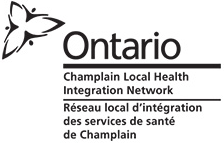
What Is Benztropine Used For?
Benztropine is approved by Health Canada in adults, adolescents and children aged 3 years and older for the treatment of movement side effects (parkinsonian or “extrapyramidal” side effects (also called EPS)) caused by antipsychotic medications. Benztropine is sometimes also referred to as an “anticholinergic” medication.
Benztropine may be used to treat the following conditions:
- Extrapyramidal side effects (EPS), akathisia (severe physical restlessness, agitation) or other movement side effects of antipsychotic medications (such as Risperidone, Haloperidol)
- Dystonia: spasms of face (including eyes, tongue, jaw), neck and back muscles (seizure-like movements)
- Parkinsonian effects: muscle stiffness, rigidity, difficulty initiating movement, unstable posture, shuffling steps when walking, slowed movements, and tremors (shakiness)
Your doctor may be prescribing this medication to you for another reason. If you are unclear why benztropine is being prescribed, please ask your doctor.
How Does Benztropine Work?
Benztropine works by affecting the activity of the brain chemicals acetylcholine and dopamine. Benztropine restores the balance between the two brain chemicals in the parts of the brain that control the action of muscles. This in turn improves the movement effects caused by antipsychotic medications and Parkinson’s disease.
How Should Benztropine Be Taken?
Benztropine comes in tablets that are taken by mouth. It may be taken on an as-needed basis, or on a regular basis once or twice daily. Your doctor will determine how much you should take, based on your symptoms and your response to this medication.
An injectable form of this medication is also available. It may be used for sudden and severe muscle spasms. Oral doses of benztropine may be given for 2 to 3 days following the injection to prevent muscle spasms from returning.
If you take benztropine regularly on a daily basis, try connecting taking your dose with something you do regularly at that time(s) (for example: brushing your teeth) to help you remember. Do not drink alcohol while taking this medication, as this may result in increased side effects. Caffeine use may also increase the side effects.
When Will Benztropine Start Working?
When used to relieve movement side effects induced by antipsychotic medications, benztropine may need to be taken for 1 or 2 days before you notice an improvement in your symptoms. Unless directed by your doctor, do not increase, decrease, or stop taking the medication if there are no improvements in the first few days. A short delay in response is normal. If the injectable form is used, you may notice an improvement in symptoms as early as within 15 minutes.
How Long Do I Have to Take Benztropine?
Treatment with benztropine will only be needed if you experience movement side effects from antipsychotic medications. Some people may require benztropine for a short duration, while others continue to benefit from this medication for as long as they are taking antipsychotic medications.
After 1 to 2 weeks, your doctor may assess the need for you to continue benztropine treatment.
After you have been taking benztropine on a regular basis, stopping it suddenly may trigger uncomfortable withdrawal effects such as irritability, nausea, vomiting, headache or difficulties sleeping. Do not suddenly stop taking this medication with first discussing it with your doctor. If you and your doctor decide it is best for you to stop using benztropine, your doctor will explain whether you can stop the medication right away or if you should reduce the dose gradually.
Is Benztropine Addictive?
Benztropine is not addictive. You will not have “cravings” for it like some people do with nicotine or street drugs.
What Are the Side Effects of Benztropine and What Should I Do if I Get Them?
As with most medications, side effects may occur. These effects are usually more common when starting a medication or after a dose increase. Most side effects are mild and almost always decrease with time. It is also possible to experience a side effect that you feel is serious or long-lasting. If this occurs, speak to your doctor about ways to manage the side effects at your next appointment. On the next page are some of the more common side effects of taking this medicine. In brackets are suggested ways to lessen these effects.
Common side effects
If any of these side effects is troublesome for you, please discuss them with your doctor, nurse or pharmacist.
- Daytime drowsiness (do not drive or operate machinery until you know how this medication affects you.)
- Dry mouth (try chewing sugarless gum or sucking hard sugar-free candies, ice chips, or popsicles. Discuss this with your doctor if it becomes severe.)
- Dizziness, lightheadedness, low blood pressure (try getting up slowly from a sitting or lying down position. Do not drive or operate machinery until you know how this medication affects you.)
- Blurred vision
- Constipation (increase exercise, fluids, vegetables, fruits, and fiber)
- Headache (try using a pain reliever like acetaminophen (plain Tylenol®))
- Stomach upset, nausea, vomiting (try taking the benztropine dose with food)
- Decrease in appetite (try drinking nutritional drinks such as Boost®)
- Nervousness (this usually improves with time)
This medication may affect your ability to drive, operate machinery or carry out tasks that require mental alertness. This effect may be more pronounced if this medication is taken with alcohol.
Uncommon side effects (e.g. those that occur in less than 5% of patients)
Contact your doctor IMMEDIATELY if you have any of these potentially serious side effects:
- Trouble urinating
- Fast, strong or irregular heart beat (discuss this with your doctor)
- Irritability, hyperactivity, uncontrollable behaviour or any other abnormal changes in mood or behaviour (discuss this with your doctor)
- Seizures (convulsions) (this effect is very rare. Seek emergency medical help if this occurs)
- Severe confusion, agitation, excitement, disorientation, weakness, poor coordination, memory problems
- Hallucinations (seeing or hearing things that are not there)
- Decreased sweating, intolerance to heat, heatstroke (high body temperature) (heatstroke is a very rare effect. However, since benztropine may decrease sweating, be sure to drink lots of fluids in hot weather and avoid prolonged, strenuous exercise in the sun. Talk to your doctor if you have difficulties tolerating heat, have a fever and/or experience vomiting).
- Worsening of asthma, trouble breathing (seek emergency medical help immediately if you have trouble breathing)
What Precautions Should My Doctor and I Be Aware of When Taking Benztropine?
Many medications may interact with benztropine, including some cough and cold medications; antihistamines or sleep aides such as diphenhydramine (Benadryl®, Nytol®) and doxylamine (Unisom®); some antidepressants such as nortriptyline (Aventyl®) and amitriptyline (Elavil®); monoamine oxidase inhibitors such as selegiline (Eldepryl®) or phenelzine (Nardil®), and several others. If you are (or begin) taking any other prescription or over-the-counter medications, be sure to check with your doctor or pharmacist to see if they are safe to use. Your doctor may need to change the doses of your medication(s) or monitor you carefully for side effects if you are taking certain other medications.
It is important to tell your doctor if you:
- have any allergies or have experienced a reaction to a medication
- have tardive dyskinesia
- have a heart condition
- have high or low blood pressure
- have epilepsy or have ever had a seizure
- have liver or kidney problems
- have blood disorders
- have narrow-angle glaucoma (an eye disease)
- have trouble urinating
- have heartburn or a gastric ulcer
- have obstruction of the bowels or the urinary system or
- have ulcerative colitis (a disease of the bowels) or an infection of the bowels
- have chronic obstructive pulmonary disease, also known as COPD (a respiratory disease)
- have depression, bipolar disorder or any other psychiatric condition
- drink alcohol regularly
- miss a period, are pregnant (or are planning to become pregnant) or are breast-feeding
What Special Instructions Should I Follow While Using Benztropine?
- Keep all appointments with your doctor. Your doctor may order certain assessments and tests (for example: abnormal involuntary movement scales) to monitor your condition and to check how you are responding to benztropine.
- Do not allow anyone else to use your medication.
What should I do if I forget to take a dose of benztropine?
If you take benztropine regularly and you forget to take it, take it as soon as you remember. However, if it is almost time for your next dose (e.g., within 4 hours), skip the missed dose and continue with your regular dosing schedule. Do NOT double your next dose.
What storage conditions are needed for benztropine?
- Keep this medication in the original container, stored at room temperature away from moisture and heat (e.g., not in the bathroom).
- Keep this medication out of reach and sight of children.
Share This Information
You may wish to share this information with your family members to help them to understand your treatment options. Since every person's needs are different, it is important that you follow the advice provided to you by your own doctor, nurse and/or pharmacist and speak to them if you have any questions about this medication.
About this document
Special thanks to the Kelty Centre for Mental Health for permission to adapt this document. The original document was developed by health professionals of BC Mental Health and Addiction Services, and reviewed by the staff of the Kelty Mental Health Centre. French translation provided courtesy of the Ontario Centre of Excellence for Child and Youth Mental Health and the Children's Hospital of Eastern Ontario (CHEO).
Creative Commons License
You are free to copy and distribute this material unchanged and in its entirety as long as 1) this material is not used in any way that suggests we endorse you or your use of the material, 2) this material is not used for commercial purposes (non-commercial), 3) this material is not altered in any way (no derivative works). View full license at http://creativecommons.org/licenses/by-nc-nd/2.5/ca/. For any other uses, please contact the original rights holder, the Kelty Mental Health Centre
Disclaimer
Information in this pamphlet is offered ‘as is' and is meant only to provide general information that supplements, but does not replace the information from your health provider. Always contact a qualified health professional for further information in your specific situation or circumstance.






